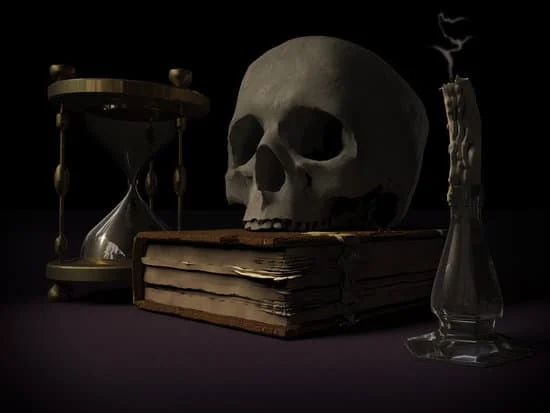We hope you enjoy our articles. Please note, we may collect a share of sales or other compensation from the links on this page. Thank you if you use our links, we really appreciate it!
The United Nations’ World Happiness Rankings is always an interesting vantage point from which to make inter-cultural comparisons between societies that, on one hand, embrace commercial/secular/materialistic values and, on the other hand, societies that embody more traditional/spiritual/inter-personal values. Three traits that the repeat winners in these rankings (mostly northern European countries and Australia/New Zealand) all seem to share, is 1) a strong political-financial investment in their public-sector institutions like education, healthcare, and family support (call it ‘democratic socialism’ if you want) in addition to private sector (capitalist) vitality, 2) a strong sense of community spirit in addition to individualistic self-reliance, and 3) emphasizing the importance of home-family-social quality of life in addition to work-professional success. The more successful nations don’t allow the latter aspect of each of these traits to undermine the integrity of the former. On the other hand, American society seems to often emphasize the latter traits over the former which, the ”Good” site’s article “Why Denmark Tops the World Happiness Rankings Year After Year” suggests, may explain why its place in the Rankings (despite the well-known strength of American optimism) has never been at the top and now seems to be declining. One explanation for this difference may lie in a long-standing concept known in Denmark as “Hygge”, which has no equivalent in American culture:
“Hygge is sometimes translated as “cozy,” but a better definition of hygge is “intentional intimacy,” which can happen when you have safe, balanced and harmonious shared experiences. A cup of coffee with a friend in front of a fireplace might qualify, as could a summer picnic in the park. In the U.S. – which also places a high value on individualism – there’s no real cultural equivalent of hygge. Income is generally associated with happiness; yet even though the country’s GDP has been rising and its unemployment rates have been declining, levels of happiness in the U.S. have been steadily decreasing. What’s going on? Income inequality continues to be an issue. But there’s also been a marked decrease in interpersonal trust and trust toward institutions like the government as well as the media. In the end, more disposable income doesn’t hold a candle to having someone to rely on in a time of need (something that 95 percent of Danes believe they have).At its core, hygge is about building intimacy and trust with others. Americans could probably use a little more of it in their lives.”
Across the world from modern America, and at the other end of the pre-industrial/post-industrial spectrum, theoretical physicist Carlo Rovelli shares his reflections in Aeon magazine, sitting by firelight with the Hazda (a hunter- gatherer people in East Africa’s wilderness). Rovelli (whose relational interpretation of quantum physics has become quite popular recently) contemplates the differences between pre-industrial , pre-agricultural primal cultures and our own modern, scientific, commercial one. All the post-Neolithic era benefits of material affluence , technocratic sophistication, and intellectual innovation that have expanded our civilization’s freedoms and potentials, he observes, have simultaneously engendered the socioeconomic stratification, economic exploitation, impersonal dehumanization, and political inequality that have made us so unhappy. While humanity may have gained incredible technical knowledge and capabilities since the dawn of Neolithic civilizations, we may have also lost the simple capacity for peace and equanimity that primal life (with its quiet, uncomplicated modes of consciousness, friendship, and spirituality) entails….. this, he concludes, is the paradoxically wondrous and tragic state of the human condition in the 21st century.
All these examples provide profound insight about why in contemporary American society, the stage of life we call ‘old age’ (or perhaps more accurately, if less euphemistically, ”end-of-life”) has been increasingly –albeit unintentionally– devalued and psychologically impoverished via its treatment as a medical condition rather than a developmental process, an individual problem rather than an aspect of community and family life, and as an opportunity for commercial exploitation instead of human concern and compassion. For University of Virginia sociologist Joseph Davis, lurking unrecognized behind this American attitude toward the end-of-life is the larger devaluation of human existence itself in our scientifically conceived worldview: life understood as just the mechanistic function of bio-chemical organisms driven by their unconscious neurology to briefly survive in a meaningless material universe and then eventually cease to have any other function at all. With the decline of cultural tradition, religious belief, community identities, or connection to anything deeper than what a scientifically constructed, capitalist commercial culture can sell us, this impoverished worldview is the unspoken credo of contemporary western civilization….and since it renders all value outside of survival-value and monetary-value obsolete, values based on traditions and social or spiritual connections have dissipated ….and ‘old age’ has become nothing more than the last step in the path to biological oblivion.
Socrates famously said that the point of philosophy is to prepare ourselves for death, and research-psychiatrist Warren Ward considers the ideas of some leading thinkers in this Socratic vein –from Socrates to Heidegger to the Buddha– along these lines. He notes how they remind us that, because of the apparent meaninglessness and hopelessness that mortality seems to impose on the human condition, many –perhaps most– of our life’s projects are intended to distract ourselves from our own mortality and, because of this, we generally lead lives of perpetual distraction and self-delusion: absorbed in idle pass-times and vain pursuits. Wordsworth wrote that “The world is too much with us, late and soon. Getting and spending, we lay waste our powers”, while Sartre simply proclaimed that life, as most of us inauthentically live it, is simply the pursuit of one “futile passion” after another. Foreshadowing Sartre’s existential angst, Thomas Hobbes, ever the cynical realist, stated: “I put for the general inclination of all mankind, a perpetual and restless desire of power after power, that ceaseth only in death”, and this insight (especially if we replace the word “power” with, say, “money” or “fleeting-pleasure”) does seem to describe the condition of post-modern life for most people in American society.
Ward concludes however, that we aren’t delimited by this condition. Like the Hazda, we have the capacity to abandon our mind-numbing diversions, confront our mortality, and face the ultimate reckoning that it presents. Doing so, in fact, is essential to turning life’s projects into constructive engagements with, rather than an escape from, both mortality and meaning. Facing the inevitability of death revitalizes life and infuses our life’s goals with purpose and enduring significance.
I tend to agree with Ward myself, but would add that this also depends on how we conceive of life, death and the human condition….If we’re only, as the contemporary Western scientific-naturalist paradigm appears to suggest, mere biological organisms condemned to perpetual competition with others for material possessions and fleeting pleasures in a meaningless physical universe destined, as current cosmology tells us, to eventually dissolve into a state of ‘heat-death’ and the oblivion of eternal entropy, then neither life or death (or anything else) would seem to have any meaning. Our death is final and our lives are pointless and ephemeral. However, if there is some ultimate design –some grand, eternal cosmic meaning, design, or purpose that transcends and encompasses our mortal human existence — then life with all its hopes, dreams, triumphs, tragedies, and wonder (brief and fleeing as it appears be) might perhaps have some abiding significance that endures forever….Or at least, in some meaningful way, echoes through eternity…….



